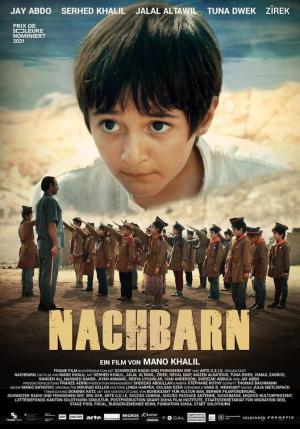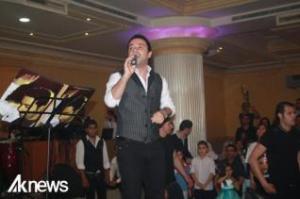
Kurdistan Story Pays Tribute to Community and Persistence at Camerimage

“Neighbours,” the story of a Kurdish Syrian border village where Arabic and Jewish families find themselves pitted against each other but still manage to thwart authoritarian madness, is more than a personal story to writer-director Mano Khalil.
The feature, shot on authentic locations with accurate dialects from the region and its 1980s setting, is screening in the Camerimage Film Festival director debut section – after a decades-long development process. The cinematographer on the film was Stéphane Kuthy.
“The idea of this film came when I was still studying film directing in the former Czechoslovakia,” Khalil says, “with the script completed some 25 years ago.”
The story had to be developed outside Khalil’s homeland in Kurdistan, he explains, because “I made a short documentary called ‘The Place Where God Sleeps.’” The film won an award in Germany in 1993 “and I was arrested in Syria because of that.”
Eventually, like his characters in “Neighbours,” Khalil was forced to buy his legal way out of Syria. “I came as a refugee to Switzerland. It took 10 years from my life until I got back to my profession and was able to make movies again.”
Thus, it would take him until 2019 to get the cast, crew and resources together to tell the story of the community he grew up in, Khalil explains – focused on children, who, like himself as a boy, have little interest in the ethnic divisions they’re being fed at school.
As the years rolled by while he developed the project, Khalil says, he continued refining the story. “Fortunately the script was good so I found financial support from institutions and some TV channels like Swiss Television and ARTE got involved. Actually this project was a dream, a hope that I never gave up.”
A tale with a remarkably upbeat tone through much of it, “Neighbours” follows the life and misadventures of a boy named Sero (Serhed Khalil), who loves pranking border guards with his uncle, his hero.
When a hardline teacher arrives, intent on indoctrinating the village children into a love of Bashar al-Assad and a hatred of Israel and imperialists, the children are willing to wear khakis and salute the name of the former, but tend to think the latter two must be something like insects you sometimes find under your house.
Khalil says the spirit of the children and their determination to love their neighbors – even the Jewish ones Sero visits on the Sabbath to light their lamps in exchange for treats – was always central to his vision.
“As small children they educated us to be slaves,” he says. “The schools were like barracks for teaching us how to hate and disrespect. Their motto was like any dictator’s: The more people remain ignorant, backward and enslaved, the longer we can rule them.”
But that wasn’t a task even a hardline regime could manage for Khalil and his community, he says. “Fortunately, we had a family, our parents. As soon as we left the school and were at home, we were the free Kurdish children again.”
By Will Tizard
variety.com
- 1971 reads


